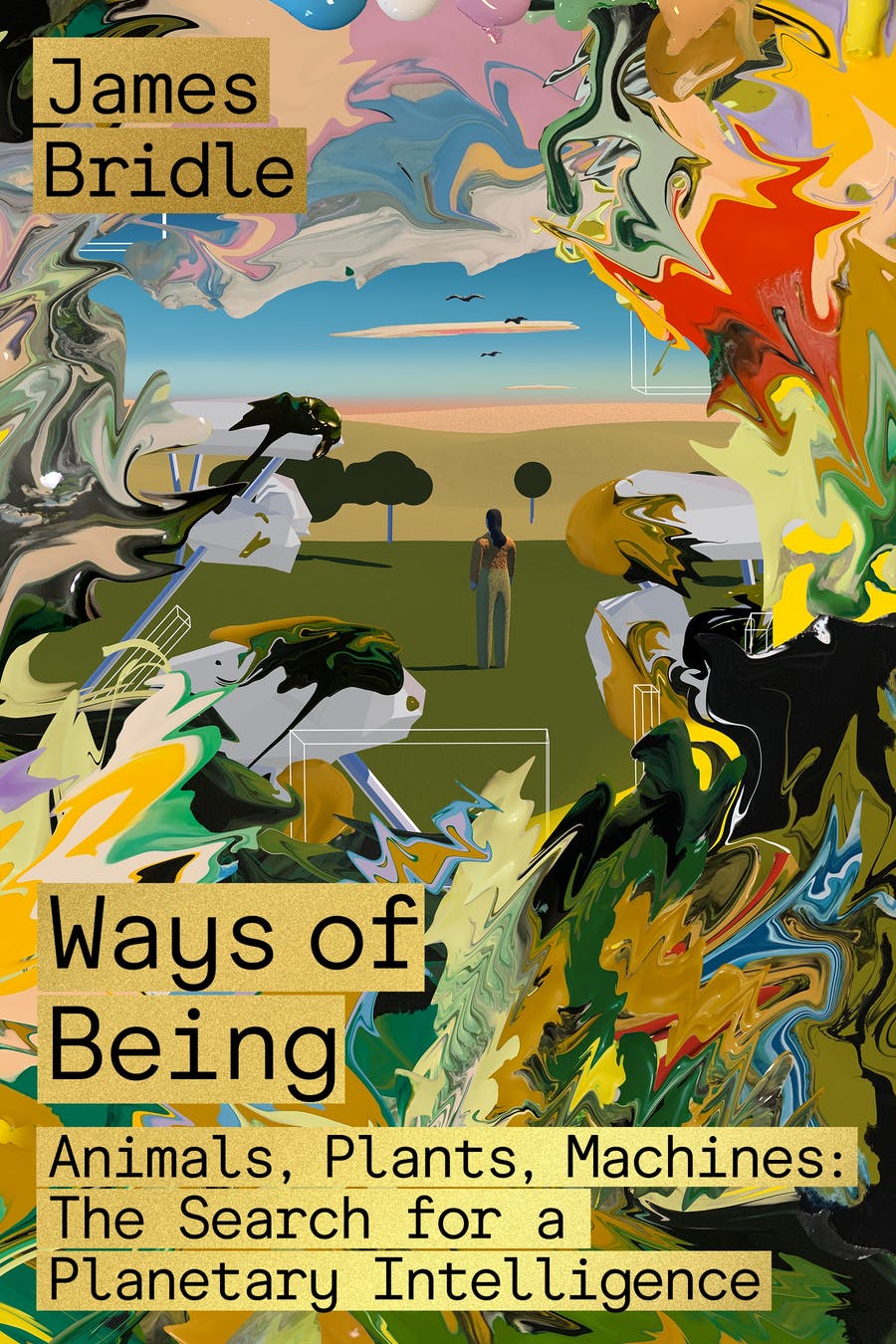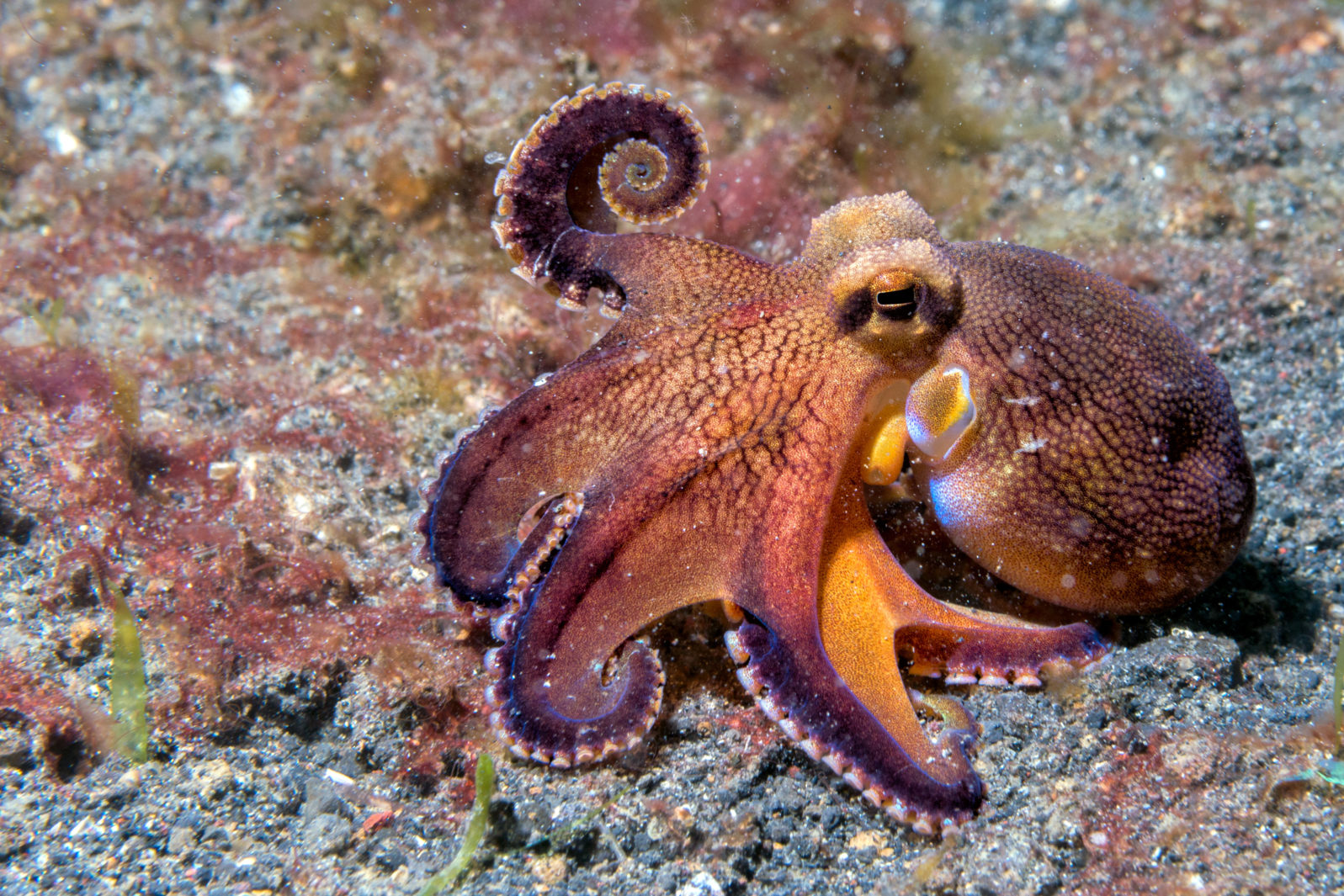Octopuses Create an “Origin of Intelligence” Conundrum
Outstandingly bright — with eyes that strikingly resemble ours — yet their ancestors split from mammals and birds 600 million years ago…In a recent book excerpt at Nautilus, James Bridle, author of Ways of Being: Beyond Human Intelligence (2022), reflects on the fact that “Octopus brains are nothing like ours—yet we have much in common.” Like many authors, he reflects on the cephalopod’s extraordinary intelligence, for example,
Otto, an octopus living in the Sea-Star Aquarium in Coburg, Germany, first attracted media attention when he was caught juggling hermit crabs. Another time he smashed rocks against the side of his tank, and from time to time would completely rearrange the contents of his tank “to make it suit his own taste better,” according to the aquarium’s director. One time, the electricity in the aquarium kept shorting out, which threatened the lives of other animals as filtration pumps ground to a halt. On the third night of the blackouts, the staff started taking night shifts sleeping on the floor to discover the source of the trouble—and found that Otto was swinging himself to the top of his tank, and squirting water at a low–hanging bulb that seemed to be annoying him. He’d figured out how to turn the lights off.
James Bridle, “Another Path to Intelligence” at Nautilus (August 17, 2022)
Also:
Remarkable. Yet at first it’s unclear what, precisely, Bridle means by saying that we “have much in common” with octopuses. The nature of their intelligence bears comparison with that of dolphins, chimpanzees, and crows. But not with that of humans.
Further on though, he notes something closer to the mark:
One of the most remarkable features of octopuses is their eyes, which are remarkably like our own. Like ours, their eyes consist of an iris, a circular lens, vitreous fluid, pigments, and photoreceptors. In fact, the octopus eye is superior to ours in one notable way: Because of the way they develop, the fibers of the optic nerves grow behind the retina rather than through it, meaning they lack the central blind spot common to all vertebrates. And this difference exists because the octopus eye evolved entirely separately from our own, starting from that blind flatworm 600 million years ago, along an entirely different branch of the evolutionary tree.
James Bridle, “Another Path to Intelligence” at Nautilus (August 17, 2022)
Such convergent evolution raises a conundrum for conventional assumptions about evolution in general, including the evolution of intelligence (in terms of problem-solving skills). The smarts of octopuses were not recognized in the past because many researchers assumed that intelligence was something of an accident that evolved among, say, mammals and birds. We really do not know how it is created but, after all, if it only happened once, it could be put down to a fluke.

Bridle has thought about that:
This idea of branching and splitting of the evolutionary tree is overly simplistic, if not entirely false. For now, let’s simply imagine it this way: The tree of evolution bears many fruits and many flowers, and intelligence, rather than being found only in the highest branches, has in fact flowered everywhere.
The intelligence of the octopus is one such flower. As Godfrey–Smith puts it, “Cephalopods are an island of mental complexity in the sea of invertebrate animals.” Because our most recent common ancestor was so simple and lies so far back, cephalopods are an independent experiment in the evolution of large brains and complex behavior. If we can make contact with cephalopods as sentient beings, it is not because of a shared history, not because of kinship, but because evolution built minds twice over.” If twice, then likely many more.
James Bridle, “Another Path to Intelligence” at Nautilus (August 17, 2022)
He might be right in thinking that many life forms will turn out to be much more intelligent than we have supposed. But we don’t have evidence for that yet. What we have evidence for is a single very intelligent invertebrate (and some moderately intelligent ones like squid, and maybe crabs, and lobsters) that confound what we expected of evolution.
Incidentally, Bridle is an animal rights activist who, to judge from his recent piece at Wired, is committed to extending democracy beyond humans. Specifically,
The enactment of a more-than-human politics calls explicitly for a politics beyond the individual, and beyond the nation-state. It calls for care, rather than legislation, to guide it.
James Bridle, “Can Democracy Include a World Beyond Humans?” at Wired (June 16, 2022)
In practice, that extension of “democracy” must lead to a principled denial of human rights because, on that view, humans — the only life form that could even appreciate democracy — are not exceptional and should not take precedence over animals.
That said, his work raises an important point: We simply don’t know how some life forms come to have what seems like a self, now that the older, tidier categories aren’t working well any more. The good news is that the new vision of nature is considerably more meaningful.
You may also wish to read:
Octopuses get emotional about pain, research suggests. The smartest of invertebrates, the octopus, once again prompts us to rethink what we believe to be the origin of intelligence. The brainy cephalopods behaved about the same as lab rats under similar conditions, raising both neuroscience and ethical issues. (Denyse O’Leary)
and
Can squirrels really be socially unjust? Check their privilege? A recent paper suggests that the animal world, untroubled for aeons by any notion of conscience, has a lot to answer for. Researchers long assumed that people think like animals. But the equation reads the same in reverse: Animals think like people. Folklore soon trumps reality. (Denyse O’Leary)
